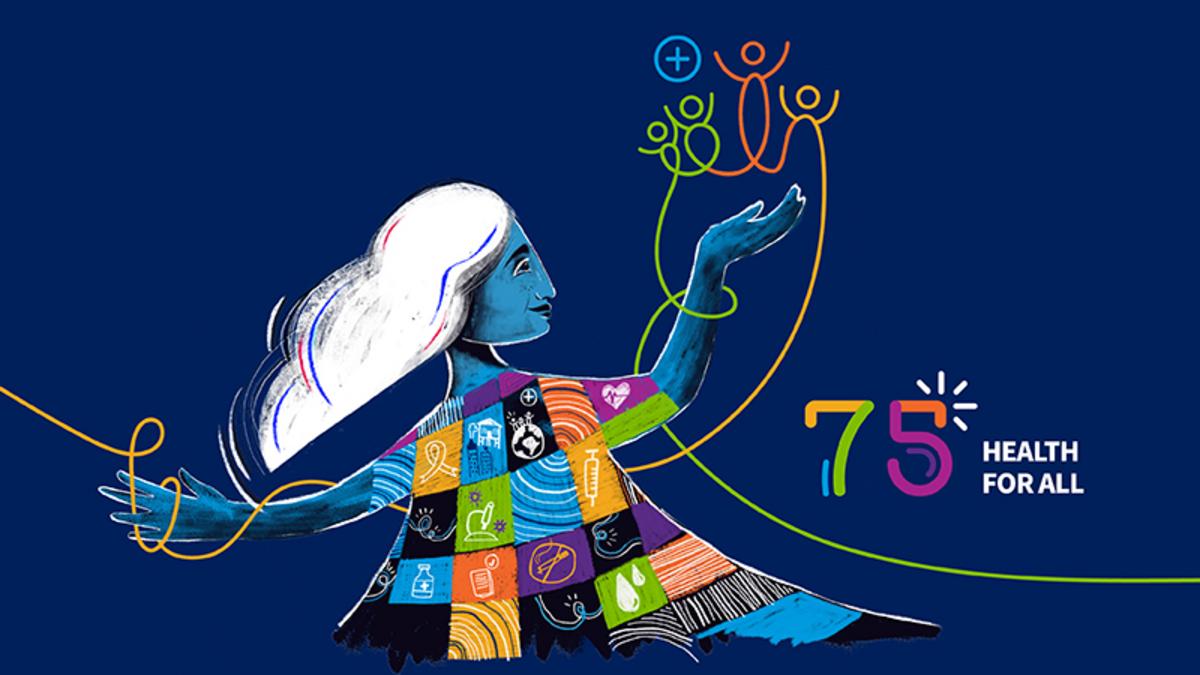Today, we commemorate World Health Day, the annual global celebration whose 2023 theme is #HealthForAll. Against the backdrop of a historic public health crisis, we reflect on what the global community has learned about how shocks like the COVID-19 pandemic can give rise to—or be mitigated by—three valuable assets: resilience, innovations, and timely local data. Learnings from global health scholars, practitioners, and policymakers underscore how fundamental these assets are to supporting people, communities, and countries to sustain and improve health through times of shocks.
There’s ample research on how shocks and disturbances—whether environmental, financial, or pathogenic—can expose the fragility and shortcomings of our social and health systems. Research has also demonstrated the importance of strengthening the resilience of health systems, communities, and individuals, equipping them with the information, skills, and resources to absorb and adapt to these shocks. For instance, during the pandemic, Kenyans with bank or mobile money accounts—a measure of “financial inclusion”—were more resilient, suffering less food insecurity than those without these assets. When the pandemic closed down businesses and shrank caregivers’ income, those with savings in the bank were able to provide meals for their families that others couldn’t who lacked the same financial cushion. To support well-being and health in the face of severe stressors like a pandemic, governments and programs across sectors should attend to needs such as increasing women’s basic financial literacy, empowering them to open bank accounts and build up savings to meet families’ health needs during times of shock. These types of policies and actions to bolster resilience need to be designed with an eye towards #HealthForAll and attuned to how these measures reach and affect people on the margins.
The catastrophic human and societal toll of a pandemic is undeniable. Yet these events can give rise to remarkable innovations in areas such as biomedical technology or service delivery. For example, with government and private support, health systems and frontline health workers in many countries pivoted to telemedicine with extraordinary agility. The shift to telehealth consultations increased health care access to many whose health care providers suddenly stopped having in-person appointments. But it also exposed the digital divide between those with who have internet access and those who don’t. In our journey to #HealthForAll, health care innovators must be mindful of—and responsive to—the risk of innovation widening the gap between haves and have-nots. It’s worth noting, therefore, that innovations need not be technology-based. In Missouri, loosening mileage restrictions on nurses enabled rural residents to have better access to contraception than before the pandemic. Such innovations and their benefits will extend beyond the COVID-19 era, and health and social sector systems can leverage them to improve care, especially for those who have been historically marginalized.
Finally, research reinforces the maxim that progress happens at a local level, and we need local data to achieve #HealthForAll. Whether monitoring infectious disease spread in a pandemic or tracking the health impact of a flood, our strategies need to be informed by data so granular it can reflect not just what’s going on in a state or city, but a neighborhood. For example, we found that concerns around paying for the COVID-19 vaccine in urban Black, Indigenous, and People of Color communities increased over time, while this concern was less salient at a national level. While recognizing the vital importance of global initiatives and action—the successful push to get universal health coverage on the worldwide health agenda is a case in point—we look to local data to shed light on where the coverage gaps are, and which pockets of the population are systematically left behind.
Three years after the World Health Organization declared COVID-19 a global pandemic, we remember the 6.8 million lives lost to the novel virus, and lament the disproportionate burden shouldered by the poor and disadvantaged. As global health researchers and advocates working to address health disparities, we continue to find inspiration in data-driven solutions that help communities and health systems respond equitably to shocks. And we commit to continuing to produce evidence and lessons to reimagine approaches to address social and health issues, ensuring a future of affordable, quality #HealthForAll.




